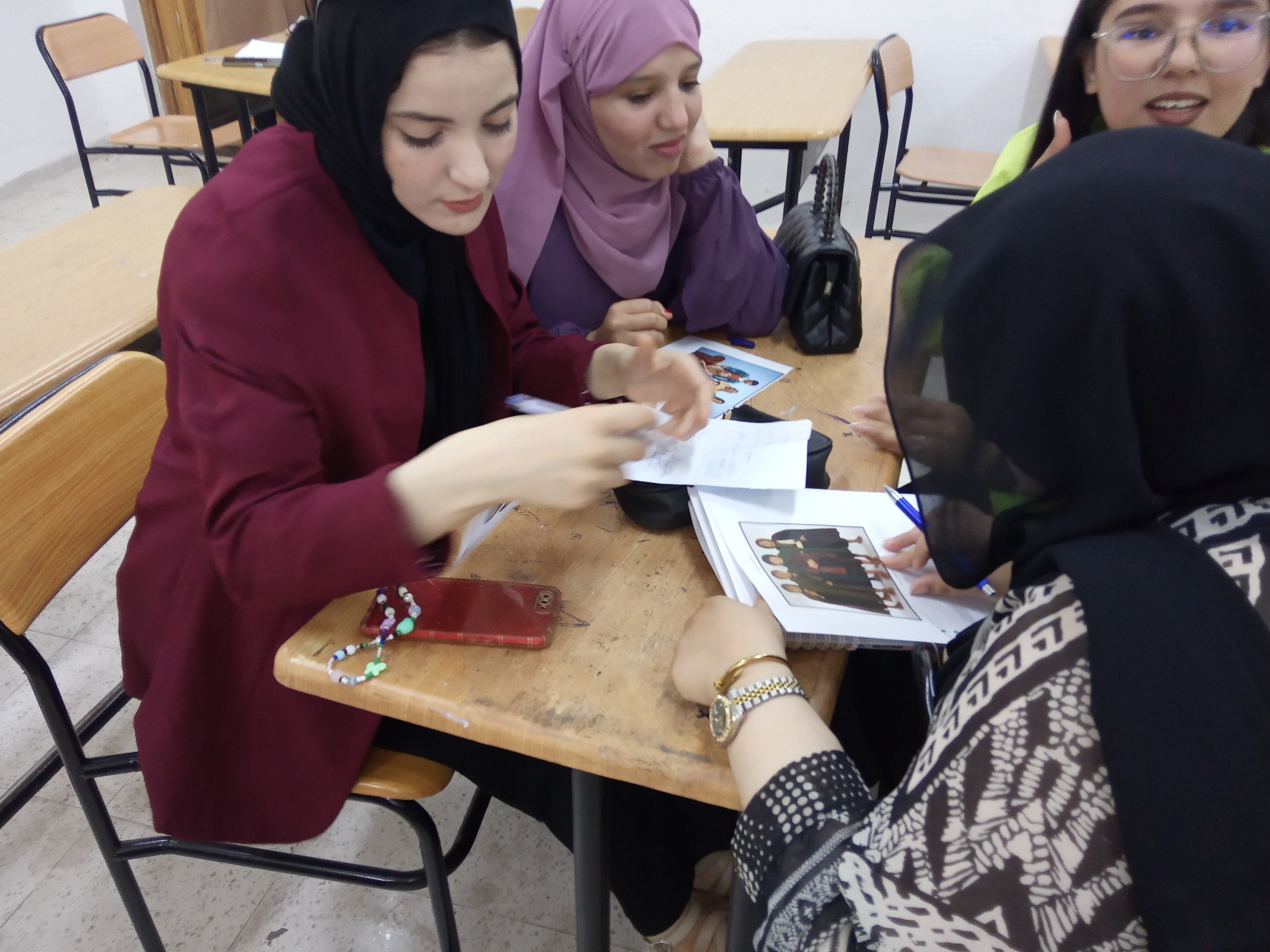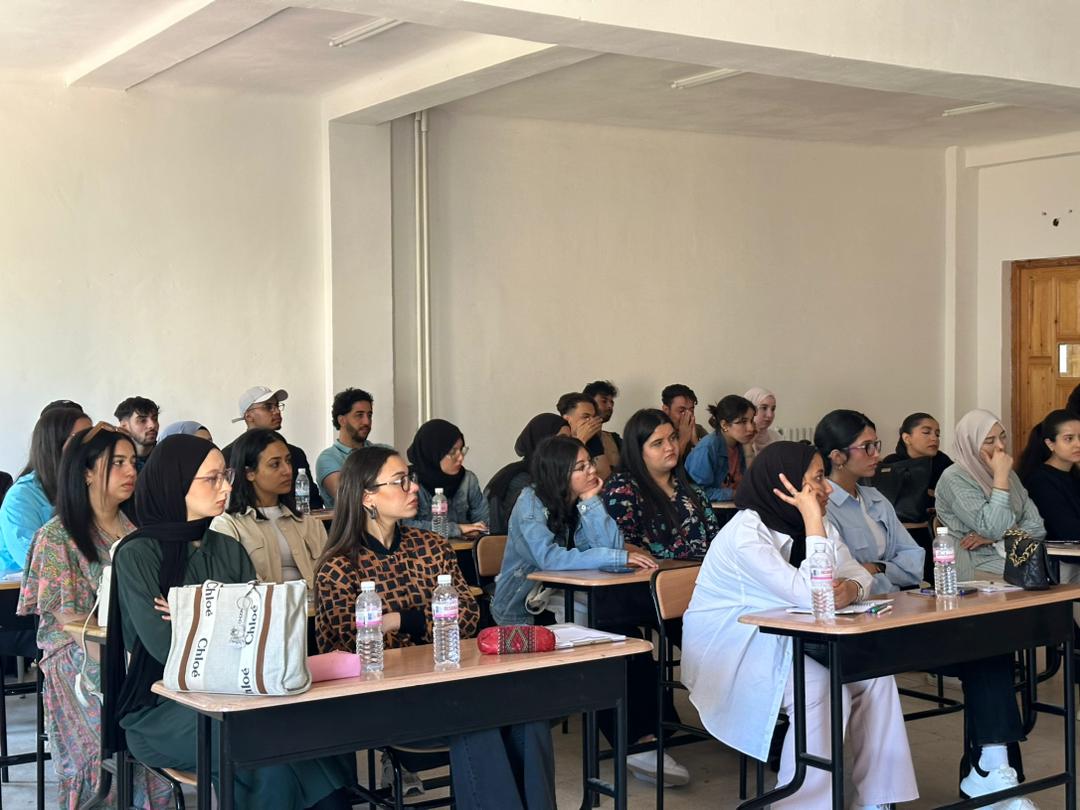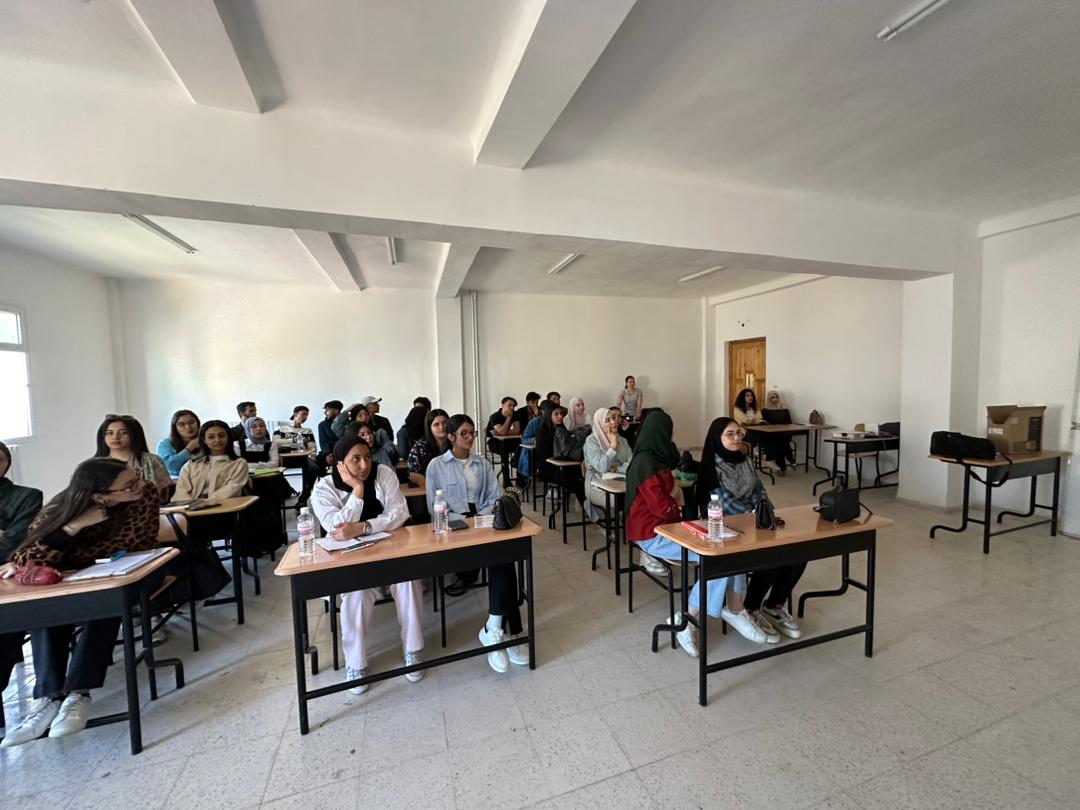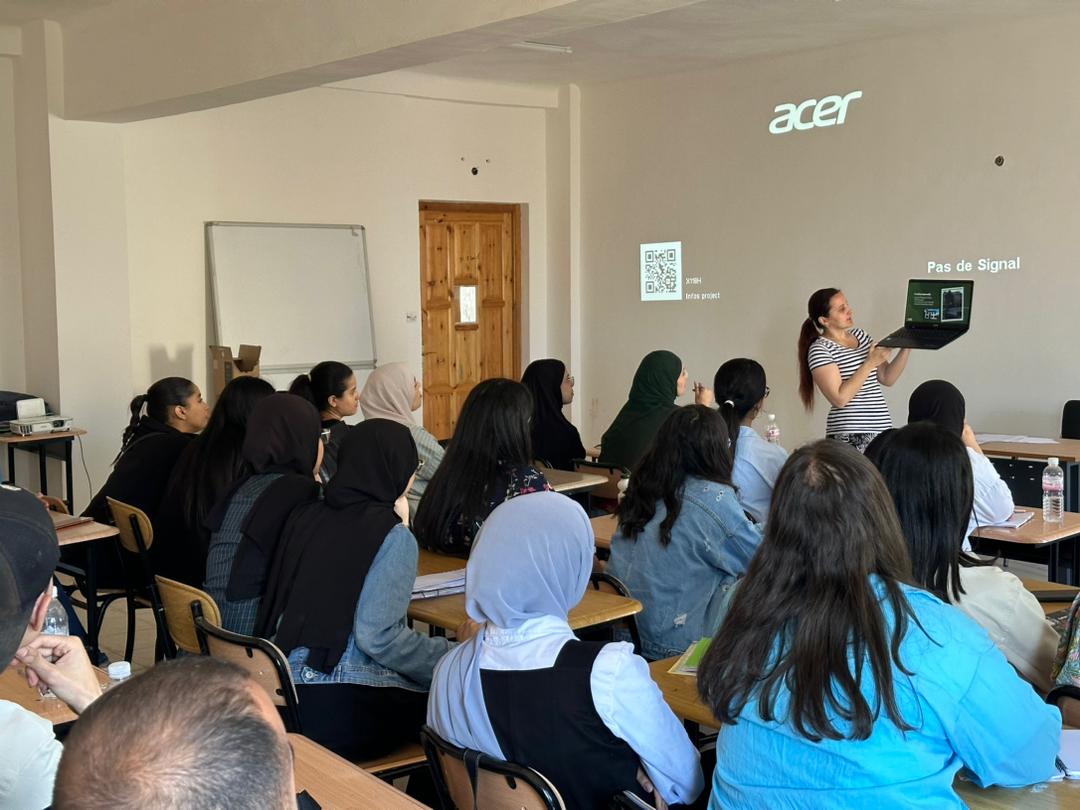User blog: Martina Juričková
On May 6, Dr. Juričková held a 3-hours long workshop with the third year bachelor’s degree students of Badij Mohktar University in Annaba, Algeria, focused on friendship.
The session started with the description of pictures depicting groups of friends from film and television. The students had to identify who the pictured people are, what are their relations, and what personal qualities they display in interaction with each other.


This was followed by a discussion on what friendship is, what qualities are important in it, which form can it have, and lots more, where students were encouraged to share their own personal experience from/about frienships.
Afterwards, the students were presented with 4 philosophical accounts of friendship from different historical periods, from Aristotle, Cicero, Thomas Aquinas, and C. S. Lewis. The students had to discuss which of the characteristics of friendship defined by these men are still relevant nowadays, in orderto observe that human relationship do not change that much throuought history, no matter how much the society develops technologically.




After a break, we continued with developing our own definitions / theories on friendship.




In the last activity, the students had to imagine a situation that a student from Slovakia would come to Annaba for an Erazmus exchange program for 6 months. They had to advise this student on how to find new friends in Annaba, what to do and not to do to find them, and how to maintain friendship with people back home.



On May 5, Dr. Juričková from Constantine the Philosopher University in Nitra, Slovakia, organised an on site workshop with the first year master’s degree students of Badij Mohktar University in Annaba, Algeria, which she visited on the occasion of Erazmus teaching mobility.

The lesson started with an introduction of the socio-historical context of the era when Wordsworth lived - the time of the first industrial revolution, the romantic literary movement, and the life and work of Wordsworth.







Despite some problems with the technology, we then proceeded to the analysis of one of Wordsworth’s sonnets, "The World is Too Much with Us". The students discussed its environmental message and its lasting relevance.



















Sometimes the best ideas on how to approach the teaching about and analysing literary works come from our students themselves. In my classes, they are encourage to come up with interactive activities focused on various aspects of literary works, and often they manage to pleasantly surprise me when they create either wonderful and insightful presentations or even games based off given texts. Their ideas, in turn, inspire me to develope them into lesson plans as a part of our project, so they in the furure even other teachers can benefit from them.
So today I want to express thanks to a number of students from CPU whose work I turned into lesson plans for this project and I want to acknowledge their authorship.
The first one is Ivana Kasalová who created a presentation on ecological themes in Wordsworth’s sonnet "The world is too much with us" and suggesting the idea that students and pupils learning about it can either try to create posters reflecting the timeless main message of the sonnet, or even try to write own poems to reflect on the impact of human activity, mainly industrialization, on nature in our days.



Another groups of students, Diana Ďuriková, Lucia Koszorúová, and Veronika Kupková, created a whole complex boardgame based on the reading of Charles Dickens’s novella "The Christmas Carol" accompanied with 60 questions payers have to answer as they progress along the board plan.



